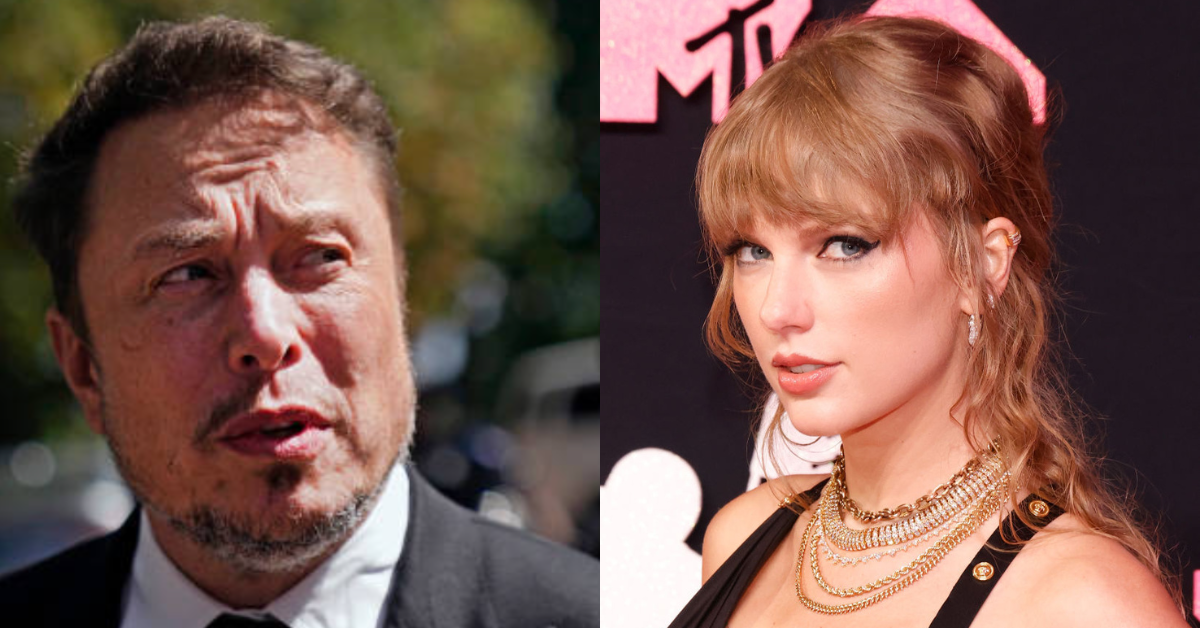As the social media platform X, formerly known as Twitter, grapples with a series of controversies and questionable business decisions, its owner Elon Musk has taken an unconventional route to gaining attention and support—by reaching out to none other than global pop sensation Taylor Swift.
Musk was criticized after he called on the musician to release music and concert videos on the flailing social media site after Swift announced her "Taylor's Version" of her album 1989.
Swift's fans, known as Swifties, are eagerly awaiting the latest installment in the singer's series of re-recorded albums, scheduled for an October 27 release. Swift has been generating excitement by teasing the release, inviting fans to solve puzzles to reveal the titles of vault tracks featured on the album.
She recently shared these track titles and back cover images on social media, saying she "can't wait for this one to be out, seriously."
You can see her post below.
Musk responded shortly afterward with the following pitch:
“I recommend posting some music or concert videos directly on the X platform."
You can see his post below.
While Swift's popularity and influence in the music industry are undeniable, Musk's suggestion appeared to be a transparent attempt to leverage her superstardom for the benefit of his beleaguered social media platform.
That did not go unnoticed by his critics, who noted he'd failed to provide any compelling reason why Swift, one of the world's most successful musicians, should do so.
Earlier this week, Musk was hit with fierce backlash after saying he is "moving towards" charging a fee for all users of X in order to "combat vast armies of bots."
During a live-streamed conversation with Israeli Prime Minister Benjamin Netanyahu, Musk said "We want it to be a small amount of money" though he offered no details about when or how X's subscription model might be implemented.
Reports from last year indicated that Musk was considering placing all of X behind a paywall, with a possible free limited browsing model to encourage subscriptions, in an effort to boost revenue following the loss of major advertisers.
The billionaire's efforts to compensate for the revenue loss resulting from the mass exodus of advertisers after substantial layoffs, including those in safety and moderation roles, have proven to be highly unsuccessful thus far.
 COMICSANDS
COMICSANDS percolately
percolately georgetakei
georgetakei secondnexus
secondnexus george's picks
george's picks












